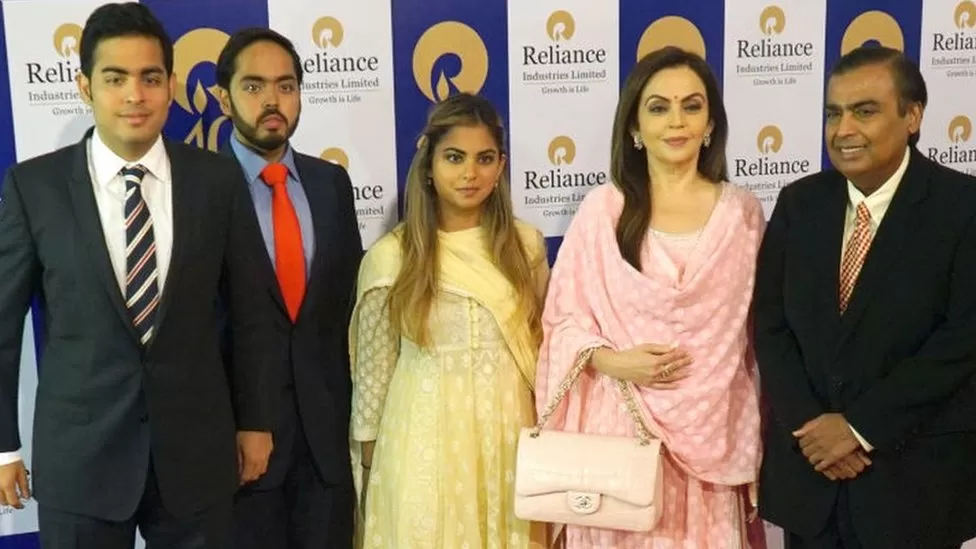At the annual meeting of his $220bn (£193bn) retail-to-refining conglomerate in August, Indian billionaire Mukesh Ambani carved out distinct duties for each of his three children, providing the strongest sign yet of a succession plan.
Mr. Ambani’s oldest son, Anant, is being groomed to handle new energy, while his older twins, Akash and Isha Ambani, will head the telecoms and retail sectors at Reliance Industries Ltd.
For quite some time, plans have been in the works for one of India’s most valued firms, Reliance, to undergo its most awaited leadership transition. Details of the upcoming wealth transfer are currently vague and open to much speculation.
Mr. Ambani’s desire to avoid the succession struggle he had with his younger brother 20 years ago, after their father died without a will, is obvious.
In addition, the other women in Isha Ambani’s family have played a much less important role in the company’s main operations than Isha has.
An increasing number of women from India’s most powerful industrial families have been promoted to C-suite roles over the past two decades, though experts believe there is still a long way to go.
Mr. Ambani, at age 65, is still actively involved in operating Reliance as its chairman and managing director, and he could have waited longer to put his children in the spotlight.
On the other hand, he is representative of a “new generation of family business leaders” in Asia who have seen succession feuds and want to take “every step possible” to make the journey smooth for their children, according to Prof. Kavil Ramachandran, a senior adviser at the Thomas Schmidheiny Centre for Family Enterprise at the Indian School of Business.


